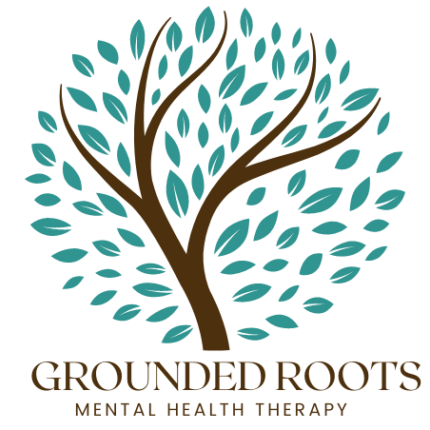Anxiety

Understanding Anxiety: Causes, Symptoms, and Strategies for Relief
Anxiety is a natural response to stress and can even be helpful in certain situations by keeping us alert and focused. However, when anxiety becomes excessive or uncontrollable, it can interfere with daily life and well-being. Anxiety disorders are among the most common mental health conditions, affecting millions of people worldwide. The good news is that with the right knowledge, support, and treatment, anxiety can be effectively managed.
What is Anxiety?
Anxiety is the body’s natural reaction to perceived danger or stress, often referred to as the “fight or flight” response. While occasional anxiety is normal, persistent, excessive, or irrational fear and worry may indicate an anxiety disorder. Anxiety disorders go beyond temporary worry and often require intervention to manage their impact.
Types of Anxiety Disorders
There are several types of anxiety disorders, including:
•Generalized Anxiety Disorder (GAD): Persistent and excessive worry about everyday activities or events.
•Panic Disorder: Recurrent and unexpected panic attacks involving intense fear and physical symptoms like heart palpitations or shortness of breath.
•Social Anxiety Disorder: Intense fear of social situations, often driven by worry about judgment or embarrassment.
•Specific Phobias: Irrational fear of a specific object or situation, such as heights or spiders.
•Obsessive-Compulsive Disorder (OCD): Intrusive, unwanted thoughts (obsessions) and repetitive behaviors (compulsions) aimed at reducing anxiety.
•Post-Traumatic Stress Disorder (PTSD): Anxiety following exposure to a traumatic event.
Common Symptoms of Anxiety
Anxiety can manifest in various physical, emotional, and behavioral symptoms. Common signs include:
•Physical Symptoms:
•Rapid heartbeat or chest pain
•Shortness of breath
•Sweating or trembling
•Fatigue or dizziness
•Stomachaches or nausea
•Emotional Symptoms:
•Persistent worry or fear
•Feeling overwhelmed or restless
•Irritability or anger
•Difficulty concentrating
•Behavioral Symptoms:
•Avoidance of certain situations or activities
•Compulsive behaviors or rituals
•Changes in eating or sleeping patterns
Causes and Risk Factors
Anxiety is a complex condition with no single cause. Factors that may contribute include:
•Biological Factors: Imbalances in brain chemistry and genetics can increase susceptibility.
•Environmental Factors: Stressful life events, trauma, or significant changes can trigger anxiety.
•Personality Traits: Individuals with perfectionist or high-achieving tendencies may be more prone.
•Health Conditions: Chronic illnesses or hormonal imbalances can contribute.
How Anxiety Affects Daily Life
When left untreated, anxiety can impact relationships, work performance, and overall quality of life. It may lead to:
•Avoidance of important activities or opportunities
•Difficulty forming or maintaining relationships
•Physical health problems, such as headaches or high blood pressure
•Substance use as a coping mechanism
Treatment Options for Anxiety
Anxiety is treatable, and many people find relief through a combination of approaches:
1.Therapy:
•Cognitive Behavioral Therapy (CBT): Focuses on identifying and challenging negative thought patterns.
•Exposure Therapy: Helps individuals confront fears in a controlled setting to reduce avoidance behaviors.
•Mindfulness-Based Therapy: Encourages present-moment awareness to reduce worry about the future or past.
2.Medication:
•Antidepressants (e.g., SSRIs): Commonly used to manage anxiety symptoms.
•Anti-Anxiety Medications: Such as benzodiazepines, prescribed for short-term use.
3.Lifestyle Changes:
•Regular exercise, a balanced diet, and proper sleep can significantly reduce anxiety.
•Avoiding excessive caffeine or alcohol, which can worsen symptoms.
4.Alternative Therapies:
•Techniques such as yoga, acupuncture, or aromatherapy can complement traditional treatments.
Coping Strategies for Anxiety
In addition to professional treatment, self-help strategies can play a crucial role in managing anxiety:
•Practice Deep Breathing: Slow, deep breaths can calm the nervous system.
•Establish a Routine: Consistency in daily activities provides structure and reduces uncertainty.
•Engage in Relaxation Activities: Hobbies, journaling, or listening to music can help reduce stress.
•Stay Connected: Sharing your feelings with trusted friends or family can provide support.
•Challenge Negative Thoughts: Reframe worries with evidence-based perspectives.
When to Seek Help
If anxiety interferes with your ability to function or causes significant distress, it’s time to seek professional help. Warning signs that require immediate attention include:
•Intense, recurring panic attacks
•Difficulty performing daily tasks
•Thoughts of self-harm or suicide
Overview
Anxiety is a common but manageable condition. By understanding its causes and symptoms, seeking professional support, and adopting healthy coping strategies, individuals can regain control and lead fulfilling lives. Remember, you don’t have to face anxiety alone—help is available, and recovery is possible. If you or someone you know is struggling with anxiety, reach out to a mental health professional or trusted support network today.

